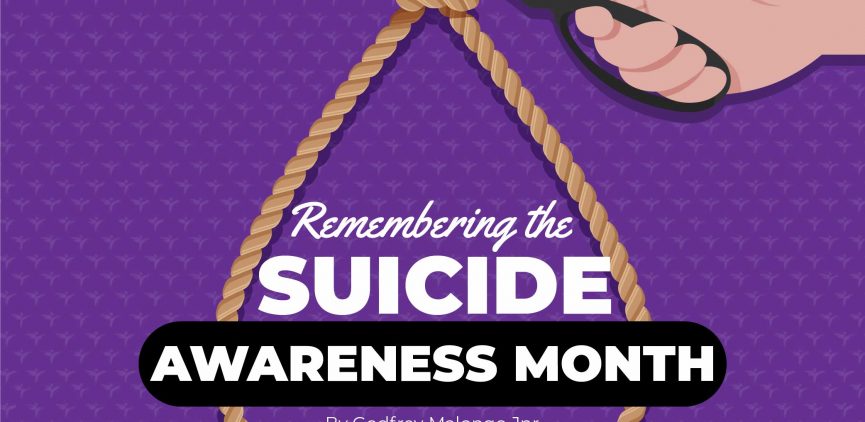Remembering the Suicide Awareness Month
Every September, the world celebrates efforts in addressing suicide and mental health issues. We have pretty much seen various messages, hashtags, and flyers with a lot of conversations centered around mental health and encouraging men to talk about their issues. We have all seen the “talk to someone” posts or the “it does not make you any less of a man to seek mental health help” quotes. We have also seen the statistics attached to men on cases of suicide. Many young people (myself included) have resorted to other ways of handling mental health issues other than seeking professional help. But can we blame us? There are hardly professional counselors in our public hospitals. Therapy sessions are barely affordable and when we open up to someone, chances are high that you’ll find your issues trending on social media the next day.
Even if you open up to your parents and close friends, you are bound to be hit with stigma and the “man up” statements. The last thing anyone wants to hear when they are in a bad mental place is “you are strong”. No, they are not, that is why they are seeking help and opening up. When I was hit with mental health issues, all I wanted was to feel accepted and not be labeled as suffering from a white people problem.
Today, we are witnessing several mental health movements and initiatives, including the toll-free counseling lines (which hardly incorporate the majority), institutions, and organizations encouraging people to seek mental health help. But are we doing enough along these lines? We encourage people to go and seek help, only for them to not find the help they need in our institutions at an affordable price. The justification is always “your health is expensive, you should be willing to pay a price for it”. With minimum incorporation of mental health in the general health program, we are bound to continue suffering from the effects of a neglected health sector.
Going forward, what direction would we want to see Malawi take in addressing mental health issues and taking the rising cases of suicide seriously? Increased capacity building for mental health professionals in public hospitals, prioritization of mental health in health plans and programs, and more development partners and organizations should commit to mental health causes and not just in statements. There is a need to increase mental health awareness through peer engagement, creating safe spaces for mental health discussions, taking mental health discussions to hard-to-reach areas, and harnessing the use of digital media. These would kickstart our quest in addressing mental health issues.
As Suicide Awareness Month is coming to an end, remember, you are not alone.






